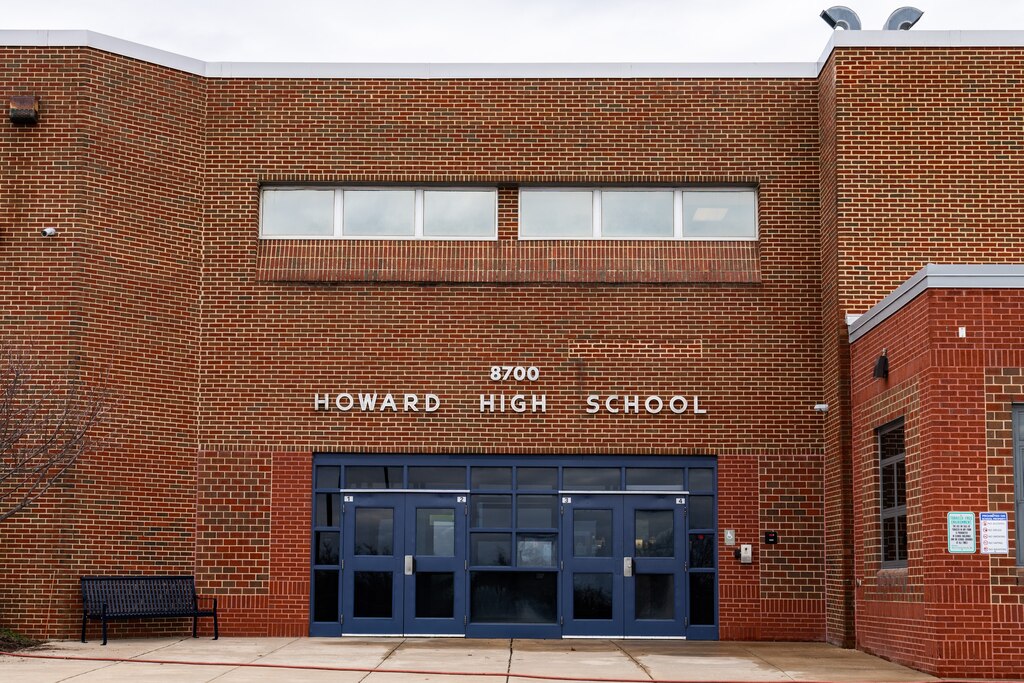Superintendents must be notified if new students have committed serious crimes while attending their previous Maryland schools, the state school board decided Tuesday morning.
The new rule comes a week after a Howard High School student with a prior criminal record was charged with first-degree murder. Howard County’s superintendent said at a press conference last week that the 17-year-old had transferred from a neighboring school district, and that Howard had “no record” of the nature of his offenses.
State education officials did not say what prompted the rule change, an “emergency action” that passed unanimously.
“We are not going to comment on any specific cases that may be in the news,” Josh Michael, state school board president, said Tuesday.
But state lawmakers sent a letter to Wright in response to the Howard student’s charges on Monday, calling for the education department to, among other things, instruct all 24 public school systems to transfer records of students with reportable offenses who are transferring school districts or transferred in the last year.
Wright told news media on Tuesday that all the lawmakers’ requests were followed with the new update.
Before the vote, the existing regulation called for law enforcement to notify the school system of an arrest of one of its students for certain offenses. It allowed, but did not require, a school system to notify another school system of the offenses if that student were to transfer. The change now makes that mandatory.
“We must be as clear and transparent as possible between and across school systems when it comes to sharing information about transfer students who may pose a threat to school communities,” Carey Wright, the state superintendent, said Tuesday morning. “We will continue to review laws and regulations to ensure that our school leaders have the information that they need to keep school building safe.”

The rule only applies to a transfer from one Maryland public or nonpublic (an independent, publicly funded school for students with high needs) school to another, and does not address students who come to Maryland public schools from independent educational programs, out of state programs, private schools or others. It only impacts student who have been arrested for a “reportable offense” (including murder, arson, armed carjacking and sexual offenses).
Read More
School principals must be informed, and the information must be submitted as a confidential file to the new school systems.
Approval from state legislatures is required for the emergency regulation to take effect, according to meeting documents.
Last week, Howard County Police arrested the 17-year-old at Howard High School with a loaded gun in his backpack and charged him with first-degree murder in the killing of 26-year-old Kendrick McLellan of Baltimore.
Police later charged a 14-year-old from Severn in connection with the killing. McLellan was found dead with multiple gunshot wounds in the driver’s seat of a car, which was parked behind an office building in the 8800 block of Centre Park Drive in Columbia — a short distance from Howard High School.
The 17-year-old was under supervision of the Maryland Department of Juvenile Services and wore an ankle monitor for a previous incident in another jurisdiction, police said. Howard County Superintendent Bill Barnes said last week the school’s staff knew he was receiving support from the Department of Juvenile Services but did not know any other details until a bail hearing last week.
The student had previously shot someone who is now paralyzed, according to the hearing.
At a Thursday press conference, Barnes said that if that information and data had been available to the school system sooner, he would not have approved the 17-year-old’s placement at Howard High.
“We had no record, and we’re unable to get information from the Department of Juvenile Services, and so my frustration is recognizing there are systemic gaps that resulted in this case,” Barnes said at the time.
The Howard shooting didn’t necessarily prompt the regulation change, Wright said, but highlighted the need for it.
“Would we have loved to have done something like this earlier? Absolutely. I think that goes without saying,” said Wright.
A previous version of this story incorrectly stated that the updated regulation applied to private schools.
Baltimore Banner reporters Maya Lora and Abby Zimmardi contributed to this report.
About the Education Hub
This reporting is part of The Banner’s Education Hub, community-funded journalism that provides parents with resources they need to make decisions about how their children learn. Read more.



Comments
Welcome to The Banner's subscriber-only commenting community. Please review our community guidelines.